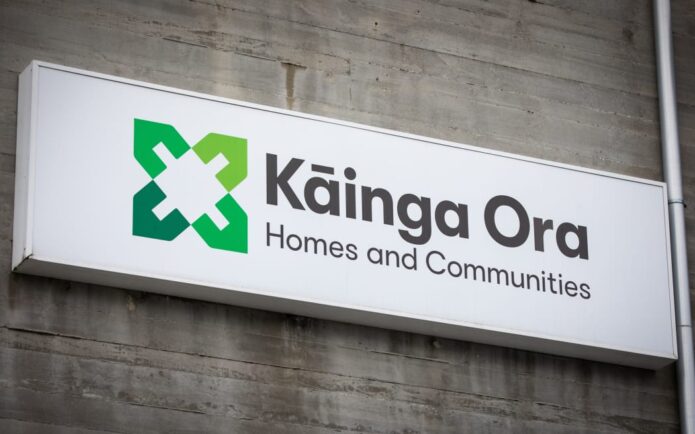PHOTO: Eliza Owen, Head of Research – CoreLogic
Anyone selling a property – or trying to buy one – in recent years would be well aware of the rapid increase in Australian property prices during 2020 and 2021. But in recent months, property prices have begun to fall, dramatically in the case of some markets.
The big questions on many minds are how much further will the market fall, and is the property market going to crash?
A Covid-led Boom
“Australia’s housing market saw a recent peak in April 2022; at that point the market had risen by about 30%,” says Eliza Owen, Head of Research, Australia, at CoreLogic. “We had a stronger upswing in regional Australia where values increased about 40% between late 2020 and early 2022, while in the combined capital cities, the upswing was about 25%.”
She says the boom was largely fuelled by the emergency low interest rates during the Covid-19 pandemic that slashed the cost of borrowing, and the strong recovery that followed, with high demand, low unemployment and high levels of accumulated savings.
Maree Kilroy, senior economist at BIS Oxford Economics, says some preference shifts during the pandemic also buoyed the housing market, such as increased demand for holiday houses, tree-changers moving to regional areas, the return of expats, and people wanting more space or their own space following lockdowns.
So Will the Property Market Crash?
According to Domain figures, the value of Australia’s housing market fell by -5% across capital cities last year. Sydney dropped by -10.9% and Melbourne was down -5.9%. While Canberra and Brisbane house values fell by -6% and -1.1% respectively last year.
Most of the damage was done by the end of spring selling season. According to CoreLogic figures, Australian combined capital city property prices fell 6.5% between their peak in early 2022 and November.
But Owen doesn’t define this as a crash.
“In my mind, a housing market crash is defined by the loss in value and a loss in mortgage serviceability, when you get to a situation where people can no longer service their mortgages, have to sell and when they try to sell, they can’t get enough money to cover the loan,” she says. “That’s not something that we’re seeing in this market.”
Kilroy says that while there is no doubt the property market is in a downturn, a crash is unlikely due to strong economic fundamentals. The first of these is demand, with high rents and the return of overseas migration resulting in more potential buyers. She says that on the supply side, continued low unemployment is limiting the number of properties for sale, with distressed sales not yet evident in the housing market.
The Impact of Rate Rises
Kilroy says rising interest rates are the key factor underpinning the property market downturn. “It is a credit availability issue that is driving this downturn, unlike a rise in unemployment or an oversupply in the market.”
Since it began raising interest rates in May last year, the Reserve Bank of Australia has increased rates for eight consecutive months, lifting the cash rate to 3.1%—its highest level in nine years.
Owen agrees: “This is the most rapid increase in the cash rate that Australia has seen since the early 1990s, in response to very high levels of inflation. Interest rates are the main thing that have led to this correction in housing values so the key element that drove the housing market upswing has essentially been reversed.”
Kilroy says that with another 0.25% increase in interest rates likely to be announced in February, and potentially beyond, property prices are set to continue to fall further.
What Is in Store for the Property Market?
Owen agrees, adding that “prices will continue to fall as long as interest rates are rising”. However, she noted that the magnitude of the declines was starting to moderate, with a national fall of 1.6% in August slowing to a fall of 1.2% in October. “Over the past couple of months (of last year), we’ve seen a slowdown in the pace of decline and there’s a bit more of an orderly trend creeping in.”
Owen says the best guide for the housing market outlook is the cost of debt, with property prices likely to increase once interest rates start to fall, something Kilroy is expecting in either the last quarter of 2023 or the first quarter of 2024.
However, Kilroy adds that since the boom was fuelled by the unique circumstances of a global pandemic, property prices aren’t expected to bounce back to their previous highs in the short term, as interest rates are unlikely to fall as far. She is forecasting any fall in interest rates to bottom out at around 2.6%.
How Far will Prices Fall?
“We’re expecting a nationwide dwelling peak-to-trough price fall of 11.5%, and we’re expecting that trough to be met in the second half of (2023),” Kilroy says, adding that BIS Oxford Economics forecasts are “at the low end of the scale compared to some commentators”.
However, the same falls will not be experienced universally.
“We’re forecasting a 13% fall for houses and 8% for units, and we’re forecasting Sydney to have the greatest fall in house prices of around 18%, while we have Perth houses at the other end of the scale with a more modest 4% drop.”
READ MORE VIA FORBES
MOST POPULAR
- THE ANCIENT STONE CITY: Proof of NZ civilisation before Kupe
- Real estate agent turns himself in | WARNING: DISTRESSING CONTENT
- Claims about Jacinda Ardern’s wealth
- Auckland 6th least affordable major housing market in world
- Why are some F45 gyms collapsing? | WATCH
- 2022 Australia’s 250 wealthiest individuals | The Rich List
- Eye surgeon accused of murdering wife puts Remuera mansion up for sale
- Century 21’s MEGA OFFICE
- Abandoned land for sale
- He sometimes struggled to pay staff, but owns a $4m holiday home

















